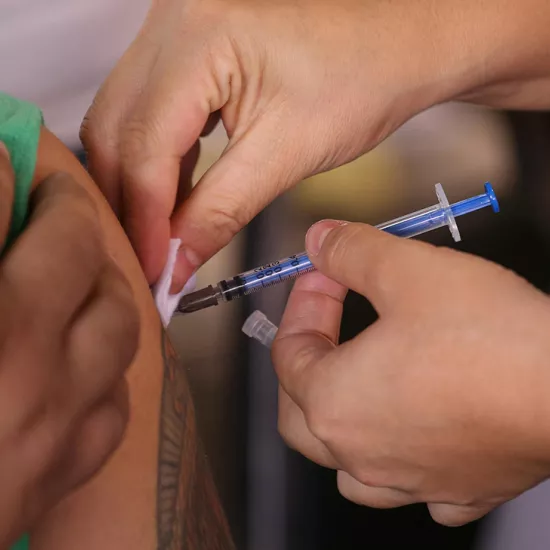Forensic science undergraduate puts new roadside drug test device through its paces

For decades police have had a roadside device to test potential drunk drivers, but until recently there have been no such devices for suspected drugged drivers. With the legalization of cannabis, the federal government, in the interest of public safety, approved such a device.
The Drager Drugtest 5000 is the first oral fluid drug screener approved for use by Canadian law enforcement. Since its debut in 2018, there have been questions raised about the device’s reliability, with some suggesting it will give a positive reading even if someone hasn’t recently used drugs.
Adrienne Chiang, a forensic chemistry specialist who will graduate this spring, is testing the device to determine if someone who hasn’t used marijuana can still test positive for THC, the main psychoactive compound in marijuana.
The issue, she says, are suggestions that potential contamination from other substances produce a false positive reading. There are those who claim their positive test is a result of an innocuous substance that doesn’t cause impairment.
It’s reminiscent of the questions about the reliability of breathalyzers, where “people think they can get away with a drug test” and blame the positive result on mouthwash, says Chiang, who hails from Malaysia and opted to study forensic chemistry because she has an interest in toxicology and chemical analysis. She was drawn to the program at UTM because it includes an internship, which is how she got involved in this study.
Chiang says mouthwash, poppyseed cakes and chewing gum are the main items blamed for false positives, with poppyseed cakes topping the list.
“There have been articles out of Vancouver that poppyseed cakes give a positive response because this device detects up to eight classes of drugs, including opiates,” she says, adding the devices calibrated for Canada mainly detect cocaine and THC.
Like a pregnancy kit, the Drager Drugtest 5000 relies on an antibody-antigen reaction to provide a positive or negative result. Police can test for the presence of cocaine or THC by collecting saliva at the roadside with a one-time-use cartridge that fits into a portable device for analysis. The question for Chiang is whether common substances can trick the system.
“I am looking at stuff people usually have in their car that they use to try to get away when they’re stopped,” Chiang says. “It’s easy to get away with mouthwash for breathalyzers. Chewing gum is one of the most common ones, because there have been chewing gums that have tested positive on the breathalyzer before because of the sugar content.”
So far, participants in Chiang’s study who have eaten poppyseed cakes, chewed gum or gargled with mouthwash have not received a positive test result.
“I think this device is reliable,” Chiang says.
That’s an important finding for the undergraduate student, who plans to pursue a masters in chemistry. She says lawyers and police can reference her study in court if questions about the reliability of the device come up.
“People keep challenging it,” Chiang says, noting drivers who think they have some scientific knowledge will fight back, arguing “don’t take me down just because it’s a positive test. I’ve taken poppyseeds.”
With the legalization of marijuana, it’s important the public, law enforcement and the forensic community understand the roadside device is reliable, Chiang indicates, noting it hasn’t been the subject of a lot of research.
“I think this could really help the forensic world.”
This story first appeard in the Spring 2020 issue of M Magazine



